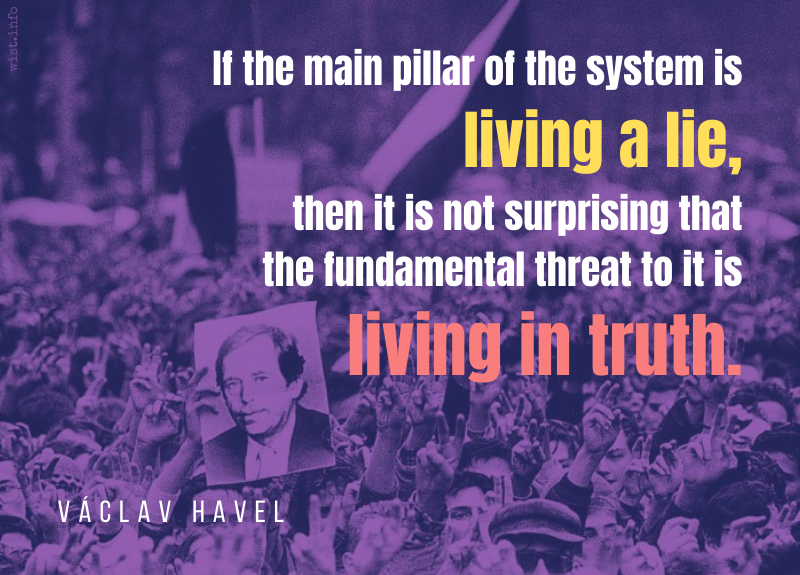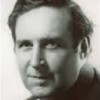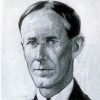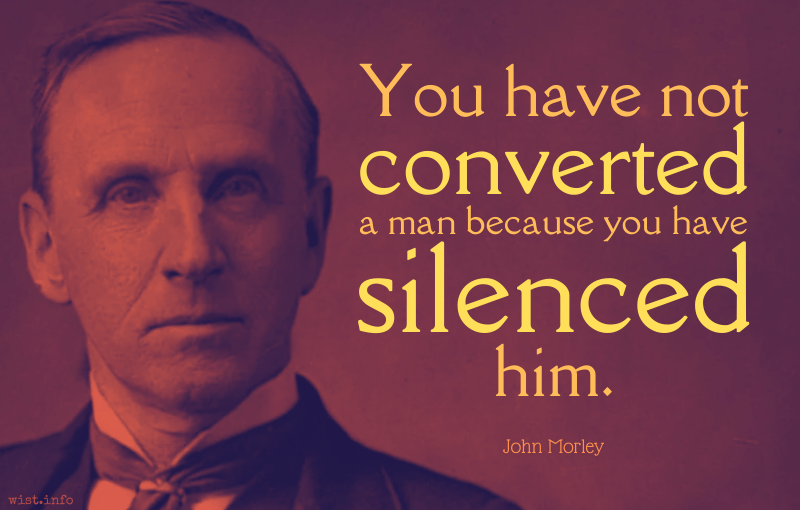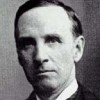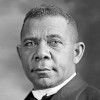It is a piece of idle sentimentality that truth, merely as truth, has any inherent power denied to error, of prevailing against the dungeon and the stake. Men are not more zealous for truth than they often are for error, and a sufficient application of legal or even of social penalties will generally succeed in stopping the propagation of either. The real advantage which truth has, consists in this, that when an opinion is true, it may be extinguished once, twice, or many times, but in the course of ages there will generally be found persons to rediscover it, until some one of its reappearances falls on a time when from favourable circumstances it escapes persecution until it has made such head as to withstand all subsequent attempts to suppress it.
Quotations about:
suppression
Note not all quotations have been tagged, so Search may find additional quotes on this topic.
But, indeed, the dictum that truth always triumphs over persecution, is one of those pleasant falsehoods which men repeat after one another till they pass into commonplaces, but which all experience refutes. History teems with instances of truth put down by persecution. If not suppressed forever, it may be thrown back for centuries.
History should teach us then, that in times of high emotional excitement minority parties and groups which advocate extremely unpopular social or governmental innovations will always be typed as criminal gangs and attempts will always be made to drive them out. It was knowledge of this fact, and of its great dangers, that caused the Founders of our land to enact the First Amendment as a guarantee that neither Congress nor the people would do anything to hinder or destroy the capacity of individuals and groups to seek converts and votes for any cause, however radical or unpalatable their principles might seem under the accepted notions of the time.
Hugo Black (1886-1971) American politician and jurist, US Supreme Court Justice (1937-71)
Barenblatt v. United States, 360 U.S. 109, 151 (1959) [dissent]
(Source)
Liberty, after she has been chained up awhile, is always more fierce, and sets her teeth in deeper, than she would otherwise have done if she had never been restrained.
[Acriores autem morsus sunt intermissae libertatis quam retentae.]
Marcus Tullius Cicero (106-43 BC) Roman orator, statesman, philosopher
De Officiis [On Duties; On Moral Duty; The Offices], Book 2, ch. 7 (2.7) / sec. 14 (44 BC) [tr. Cockman (1699)]
(Source)
(Source (Latin)). Alternate translations:
And the inflictions of freedom interrupted, are more rigorous than if it had been retained.
[tr. McCartney (1798)]
For the inflictions of liberty, when it has been suspended, are more severe than if it had been retained.
[tr. Edmonds (1865)]
Men indeed feel more keenly the suppression of liberty than any evils incident to its preservation.
[tr. Peabody (1883)]
Freedom, if suppressed, only bites with keener fang.
[tr. Gardiner (1899)]
Freedom suppressed and again regained bites with keener fangs than freedom never endangered.
[tr. Miller (1913)]
But the wounds caused by the suspension of freedom hurt worse than those caused by maintaining it.
[tr. Edinger (1974)]
When you tear out a man’s tongue, you are not proving him a liar, you’re only telling the world that you fear what he might say.
George R. R. Martin (b. 1948) American author and screenwriter [George Raymond Richard Martin]
A Clash of Kings [Tyrion] (1998)
(Source)
If the main pillar of the system is living a lie, then it is not surprising that the fundamental threat to it is living in truth. This is why it must be suppressed more severely than anything else.
Václav Havel (1936-2011) Czech playwright, essayist, dissident, politician
The Power of the Powerless, title essay (1979)
(Source)
It is always tempting when you have political discontent in your own country to say it is the fault of some other country and not of your own government.
A. J. P. Taylor (1906-1990) British historian, journalist, broadcaster [Alan John Percivale Taylor]
How Wars Begin (1979)
(Source)
The punishing of wits enhances their authority, and a forbidden writing is thought to be a certain spark of truth that flies up in the face of them who seek to tread it out.
Francis Bacon (1561-1626) English philosopher, scientist, author, statesman
(Attributed)
(Source)
Sometimes misquoted as "The punishment of wits ...."
Attributed to Bacon by John Milton, in Areopagitica (1644). It is actually Milton's translation from and paraphrase of a passage in Bacon, Advertisement touching the Controversies of the Church of England (1589):Wherein I might advise that side out of a wise writer, who hath set it down that punitis ingeniis gliscit auctoritas. And indeed we see it ever falleth out, that the forbidden writing is always thought to be certain sparks of a truth that fly up into the faces of those who seek to choke it, and tread it out.
The Latin, in turn, is from the "wise writer" Tacitus, in his Annals, Book 4, sec. 36.
In short, the quotation is partially Milton's translation of Tacitus (as quoted by Bacon), partially Milton's paraphrase of Bacon.
Whatever may be the immediate gains and losses, the dangers to our safety arising from political suppression are always greater than the dangers to that safety arising from political freedom. Suppression is always foolish. Freedom is always wise. That is the faith, the experimental faith, by which we Americans have undertaken to live. If we, the citizens of today, cannot shake ourselves free from the hysteria which blinds us to that faith, there is little hope for peace and security, either at home or abroad.
Un-American activity cannot be prevented or routed out by employing un-American methods; to preserve freedom we must use the tools that freedom provides.
Music expresses that which cannot be said and on which it is impossible to be silent.
[Ce qu’on ne peut dire et ce qu’on ne peut taire, la musique l’exprime.]
Victor Hugo (1802-1885) French writer
William Shakespeare, Part 1, Book 2, ch. 4 (1864) [tr. Baillot]
(Source)
(Source (French)). Alternate translation:
Music expresses that which cannot be said, and which cannot be suppressed.
[tr. Anderson (1891)]
Fear: A club used by priests, presidents, kings and policemen to keep the people from recovering stolen goods.
Elbert Hubbard (1856-1915) American writer, businessman, philosopher
The Roycroft Dictionary (1914)
(Source)
It is not to be supposed that the age-old readiness to try to convert minds by pressure or suppression, instead of reason and persuasion, is extinct. Our protection against all kinds of fanatics and extremists, none of whom can be trusted with unlimited power over others, lies not in their forbearance, but in the limitations of our Constitution.
Robert H. Jackson (1892-1954) US Supreme Court Justice (1941-54), lawyer, jurist, politician
American Communications Association v. Douds, 339 U.S. 382, 438-439 (1950) [concurrence and dissent]
(Source)
Heretics have been hateful from the beginning of recorded time; they have been ostracized, exiled, tortured, maimed, and butchered; but it has generally proved impossible to smother them; and when it has not, the society that has succeeded has always declined.
Learned Hand (1872-1961) American jurist
“A Fanfare for Prometheus,” speech, American Jewish Committee (1955-01-29)
(Source)
The substitution of force for persuasion, among its other disadvantages, has this further drawback, from our present point of view, that it lessens the conscience of a society and breeds hypocrisy. You have not converted a man, because you have silenced him.
John Morley (1838-1923) English statesman, journalist, writer [John, Viscount Morley]
On Compromise, ch. 5 “Realization of Opinion” (1874)
(Source)
Everybody knows that the first law of history is not daring to say anything false; that the second is daring to say everything that is true; that there should be no suggestion of partiality, none of animosity when you write.
[Nam quis nescit primam esse historiae legem, ne quid falsi dicere audeat? Deinde ne quid veri non audeat? Ne quae suspicio gratiae sit in scribendo? Ne quae simultatis?]
Marcus Tullius Cicero (106-43 BC) Roman orator, statesman, philosopher
De Oratore [On the Orator, On Oratory], Book 2, ch. 15 (2.15) / sec. 62 (55 BC) [tr. May/Wisse (2001)]
(Source)
(Source (Latin)). Alternate translations:
For, is there a Man ignorant, that the first Rule of History is, that an Historian shall not dare to advance a Falsity; the next, that there is no Truth but what he shall dare to tell? That in Writing, he shall be free of all Prepossession; of all Pique?
[tr. Guthrie (1755)]
For, is there a man ignorant that the first rule of history is that an historian shall not dare to advance a falsehood; the next, that there no truth but what he shall dare to tell? That the writer should be actuated neither by favour, or by prejudice?
[Source (1808)]
For who is ignorant that it is the first law in writing history, that the historian must not dare to tell any falsehood, and the next, that he must be bold enough to tell the whole truth? Also, that there must be no suspicion of partiality in his writings, or of personal animosity?
[tr. Watson (1860)]
Who need be informed that the first law of history is, to have the honesty to state no falsehood, the next, the courage to suppress no truth, and to avoid all suspicion of undue bias or personal animosity?
[tr. Calvert (1870)]
Who does not recognise that the first law of history is that we shall never dare to say what is false; the second that we shall never fear to say what is true; that everything we write shall be free from any suspicion of favoritism or flattery?
[ed. Harbottle (1906)]
For who does not know history's first law to be that an author must not dare to tell anything but the truth ? And its second that he must make bold to tell the whole truth? That there must be no suggestion of partiality anywhere in his writings? Nor of malice?
[tr. Sutton/Rackham (1940)]
The first law for the historian is that he shall never dare utter an untruth. The second is that he shall suppress nothing that is true. Moreover, there shall be no suspicion of partiality in his writing, or of malice.
[Bartlett's]
I am really mortified to be told that, in the United States of America, a fact like this can become a subject of enquiry, and of criminal enquiry too, as an offence against religion: that a question about the sale of a book can be carried before the civil magistrate. Is this then our freedom of religion? And are we to have a Censor whose imprimatur shall say what books may be sold, and what we may buy? And who is thus to dogmatise religious opinions for our citizens? Whose foot is to be the measure to which ours are all to be cut or stretched? Is a Priest to be our Inquisitor, or shall a layman, simple as ourselves, set up his reason as the rule for what we are to read, & what we must believe? It is an insult to our citizens to question whether they are rational beings or not; and blasphemy against religion to suppose it cannot stand the test of truth and reason. If M. de Becourt’s book be false in it’s facts, disprove them; if false in it’s reasoning, refute it. but, for god’s sake, let us freely hear both sides, if we chuse.
Thomas Jefferson (1743-1826) American political philosopher, polymath, statesman, US President (1801-09)
Letter to Nicolas G. Dufief (19 Apr 1814)
(Source)





